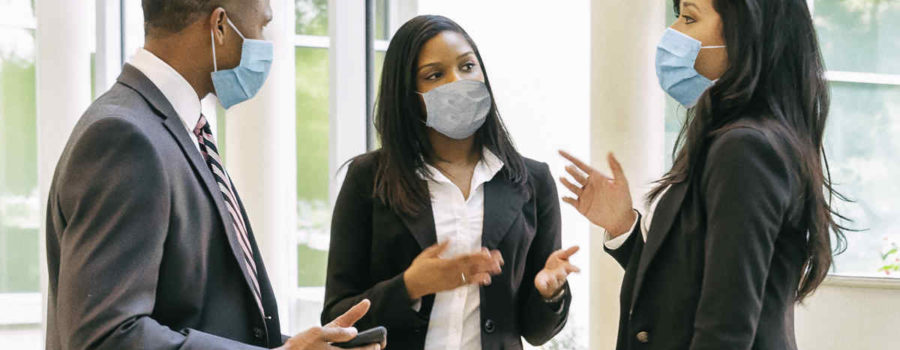Over the past several weeks, we have seen how federal, state, and local government officials—as well as medical experts, hospital administrators, and business leaders—have been responding to the recent Covid-19 crisis. We’ve watched leaders conduct daily briefings and produce personal communications designed to both inform and calm the fears of their constituents. As an executive coach, I have also seen how so many of my clients have stepped up to manage the situation during this unprecedented time of great stress and uncertainty. Here are some of my observations:
- Importance of Preparation—If nothing else, this crisis has highlighted the need for pre-planning and prevention. Although it seemed far-fetched to some, this type of pandemic had been predicted, and crisis management plans had been created. Yet, at the federal level, many of the warnings had been ignored or discounted. While the severity and impact of this crisis may have been beyond anyone’s expectations, organizations that had previously developed contingency plans, crisis communication guidelines, rapid response teams, etc., have been able to put policies and processes in place more quickly. Companies who already had flexible, remote work arrangements for its employees and frequent use of videoconference technology seemed to come together more rapidly. Of course, many organizations with workers who can’t work remotely—especially those in healthcare—have had to quickly manage their supply chain of goods/materials and put employment policies in place to ensure everyone’s safety.
- Coordinating the Management Team—Most organizations have pulled together their senior teams to coordinate a unified response to the pandemic. These management teams have been meeting regularly to address the human impact—both physical and psychological—as well as the economic and operational issues that have been affected. The most effective management team meetings have emphasized the norm of psychological safety so that participants can speak freely without fear of retribution. They openly debate issues and work together to come up with the best path forward. There is no finger-pointing or blaming others. They continue to come together to share their knowledge, listen to each other, and collectively decide on the best actions to take.
- Honest Communication—During this crisis, transparency of information has been critical. People want facts and a true understanding of the reality of the situation. The most credible leaders have provided brutal honesty, with no sugar-coating or false hope. They have built trust with the public and earned their respect by being straightforward about the issues. At the same time, they have provided optimism and hope that we will get through this crisis if we all act responsibly. Leaders like Governor Larry Hogan of Maryland and Governor Andrew Cuomo of New York have acknowledged the fear that people feel yet have conveyed confidence and steadiness in their ability to manage through the situation.
- Flexibility and Accountability—This has been a time of great uncertainty; we don’t know when or how this crisis will end. I have seen effective leaders learn as they go, be willing to admit mistakes and continue to course-correct. They have taken ownership for decisions that might have been wrong or misinformation that might have been given. They continue to learn what’s working and what’s not, adapt when new information is presented, and act thoughtfully about next steps. The ability to be agile and to be accountable has validated their resilience and strength as leaders.
- Compassion and Gratitude—In addition to being brutally honest, the most effective leaders have also conveyed their thanks for the dedication and commitment of others. Their call for unity in this effort has included an appreciation for the hardships that people are experiencing and gratitude for the many sacrifices and contributions that so many have made. When expressed with sincerity, these words and actions have provided comfort and reassurance. The most revered leaders have acted as role models for the moral values that we all try to live by.
- Caring for Oneself–As we’re told on an airplane to “put on our own mask first,” the most effective leaders have taken the appropriate actions themselves (e.g., social distancing) and are managing their own anxiety. Our leaders are not super-human, and like everyone else, must ensure their own safety despite the unending pressures that they feel. As in the case of the British Prime Minister, people get worried when their leaders fall ill, whether they agree politically or not.
While we don’t know how long this crisis will last, we look to our leaders to guide us through this period of uncertainty with intelligence, transparency, courage and compassion. We do not expect that they will have all the answers and, yes, mistakes will be made. However, leaders who learn as they go, communicate regularly, and unite all of us, are best positioned to get us through this unprecedented time safely.




